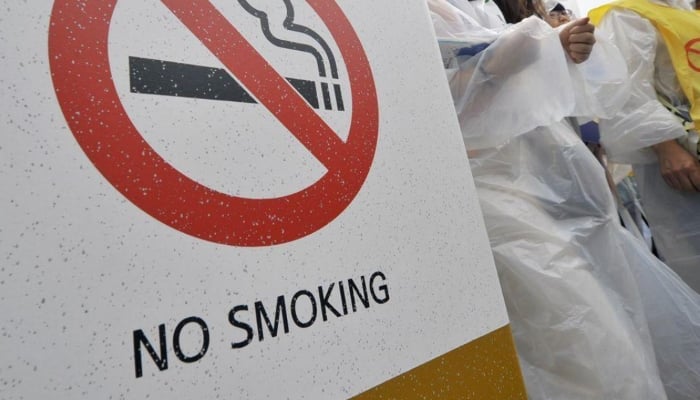Which 4 countries are winning war on smoking?
WHO revealed that 5.6 billion people, or 71% of the global population, are now protected by at least one tobacco control measure
July 31, 2023

According to the World Health Organization (WHO), only Brazil, Mauritius, the Netherlands, and Turkey have adopted all the recommended anti-tobacco measures to combat smoking.
In a recent report, the UN health agency called on countries to increase their implementation of recognised measures, including advertising bans, prominent health warnings on cigarette packages, higher tobacco taxes, and support for smoking cessation.
Mauritius and the Netherlands have now joined Brazil and Turkey in fully implementing these measures.
WHO revealed that 5.6 billion people, or 71% of the global population, are now protected by at least one tobacco control measure, marking a significant increase from 2007.
The prevalence of smoking worldwide has dropped from 22.8% in 2007 to 17% in 2021, preventing an estimated 300 million additional smokers.
However, smoking remains the leading cause of preventable death, claiming the lives of 8.7 million people annually, including 1.3 million from second-hand smoke inhalation.
The report highlighted that eight countries are just one policy step away from joining the leaders in tobacco control, including Ethiopia, Iran, Ireland, Jordan, Madagascar, Mexico, New Zealand, and Spain.
However, 2.3 billion people across 44 countries still lack protection from WHO's anti-tobacco measures. Additionally, 53 countries do not have complete smoking bans in healthcare facilities, which the WHO deemed "completely unacceptable."
Insufficient regulation of e-cigarettes was also criticized in the report. While 121 countries have implemented some measures addressing e-cigarettes, 74 countries, representing nearly one-third of the global population, have no regulations in place.
This lack of regulation includes the absence of bans on public use, labelling requirements, and advertising restrictions.
The report emphasized the need for stronger measures to protect children, as 88 countries, covering 2.3 billion people, have no minimum age for purchasing e-cigarettes.
Dr Ruediger Krech, the WHO's health promotion director, expressed concern over the tobacco industry's influence and tactics. He called for efforts to engage with the industry before enacting laws, as they are known to fight against regulations.
Dr Krech criticised the tobacco industry's attempts to appear as part of the solution while continuing to grow in profit and influence.
The WHO urges countries to prioritise the implementation of anti-tobacco measures to protect public health and combat the harmful effects of smoking.









